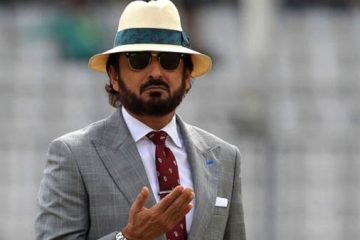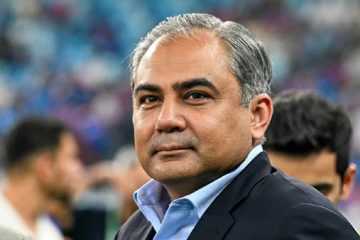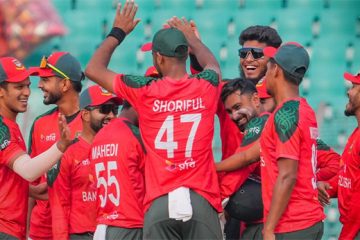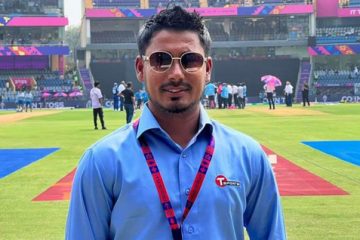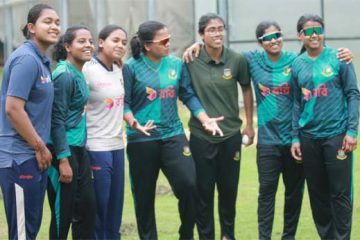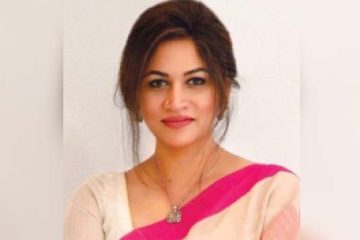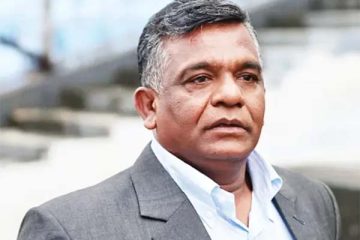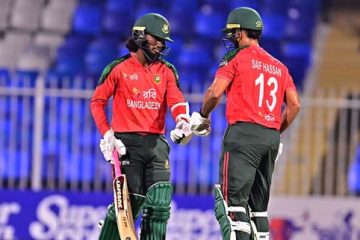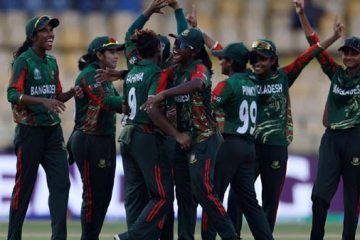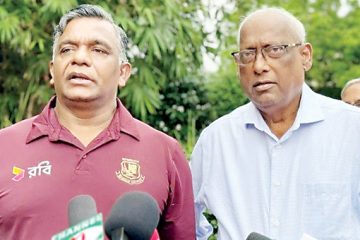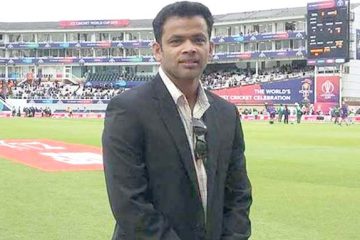Sachin Tendulkar’s super-human feats have earned him the title of “The God of Cricket” from his fans around the world. Time magazine’s latest issue – which is
scheduled to go on the stands on May 11, 2012 – features him on the cover with the same title. This is the second time he would feature on Time’s cover – the first
time being in the year 1999.
Boby Ghosh, Time’s Deputy International Editor, interview Tendulkar after the batsman achieved the phenomenal milestone of a 100 international tons. In the interview,
Tendulkar discussed numerous facets of his personality, his ability to shield himself from pressure, carrying the burden of over a billion expectations etc. Although
Tendulkar is known for his quiet demeanour off the field, Ghosh was surprised to find him in a “chatty mood.”
Sportsmen have often spoken about “the zone” which allows them to deliver their best. On the subject, Tendulkar said “”I need to surrender myself to my natural
instincts. My subconscious mind knows exactly what to do. It’s been trained to react for years.” He also said that he gets into such zones only 50% of the times, “One
would like to be in that zone more often, but it’s not that easy. It’s like you are completely cut off from the crowd, from the noise they are making. Your
subconscious has taken over.”
Tendulkar carries an enormous burden of expectations, but he spoke about his own, “Something which still gives me sleepless nights is, ‘How will I go out and keep that
standard, and live up to my own expectations? How am I going to go out and perform?’ ” He said that it was this “restlessness” that has brought the best out of him.
The pressure of expectations may prevent a player from enjoying the game and Tendulkar stressed on the importance “So much happens [on and off the field] that
sometimes you forget to enjoy the game. That’s when things don’t go smoothly”. In 2006, he played a few club games after his shoulder surgery – an experience he said
was a game changer, “I played a couple of practice games, and there was not too much media, not too many people watching. I realized something was very different: I
was enjoying cricket.”
Tendulkar’s fame and stature doesn’t allow him to move freely in India, particularly in his home city Mumbai. He said that it is “unfortunate” that he couldn’t take
his children for walks etc, but said that when he spends time at home he is like any other family man.
He also spoke about his son Arjun’s love for cricket and said that “As long as he is in love with cricket, it’s fine. Then you don’t look at your watch or count the
number of hours you’ve practiced. It’s the sheer joy and satisfaction of being on the field. And that’s what I want [for him].”
Sporting greats such as Michael Schumacher, Bjorn Borg, John McEnroe and Roger Federer have inspired Tendulkar, but he says, “but I’ve still got to be myself.” Ghosh’s
article in the Time magazine titled “The God of Big Things”, unravels the phenomenon of Tendulkar and describes him as the “The World’s best athlete.” It compares him
to modern sporting greats, “Every sport has record breakers, but of his contemporaries, only Michael Jordan, Lance Armstrong and prescandal Tiger Woods come anywhere
close to matching him in redefining the realms of possibility.”
Ghosh also says that Lionel Messi may be the best football player in the world, but he faces a stiff competition from Cristiano Ronaldo. Tendulkar on the other hand is
miles ahead of his next best competitor – Ricky Ponting who has 71 international centuries to his name.
The article describes Tendulkar’s cricketing journey, one that coincided with India’s new economic regime. It says that for a land that is not known to produce world-
beating sportsman, Tendulkar gave India a new found belief and quotes Ramachandra Guha, “Sachin showed us that was nonsense–not only could we play, we could
consistently beat countries that were supposedly of stronger physical stock.”
Tendulkar’s recent nomination to the Rajya Sabha surprised many and it begs the question, “what after cricket for him.” Guha pointed out that “There is life in India
after Sachin, but I don’t know what life for Sachin can be after cricket.”
Courtesy of cricketcountry.com

